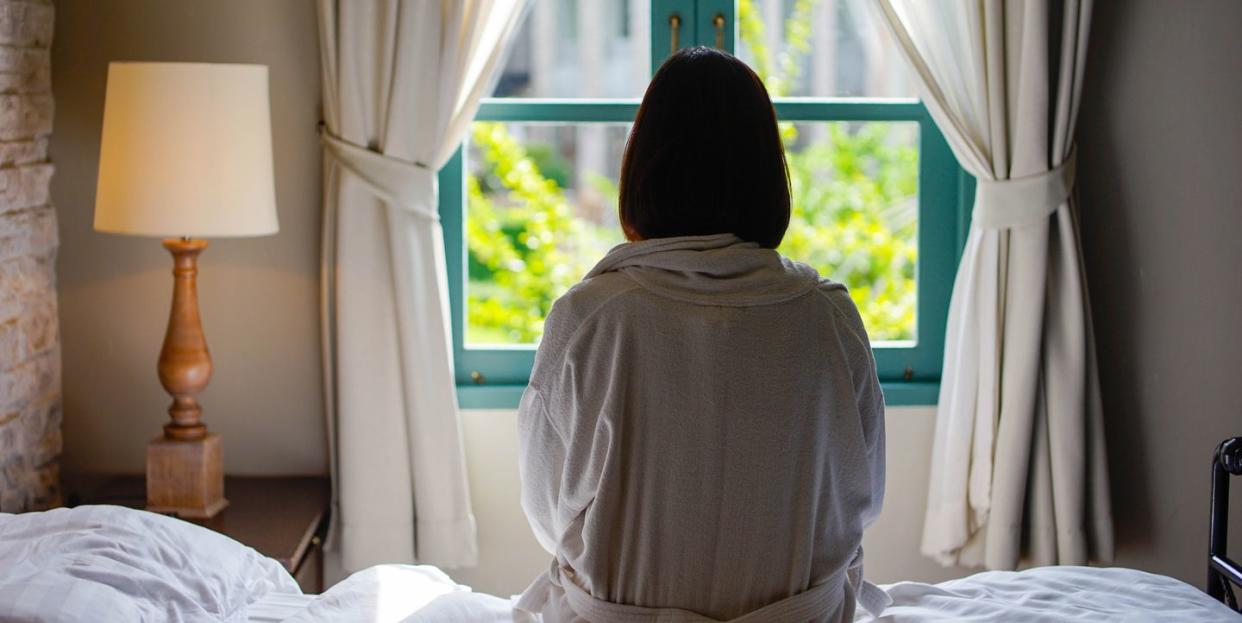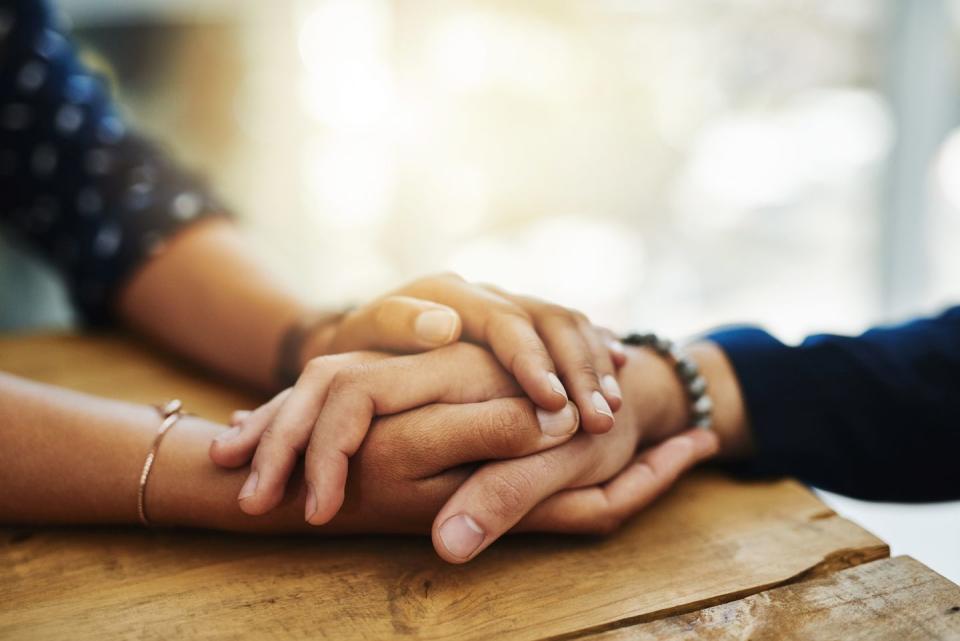What It Is Like To Suffer From PTSD After A Miscarriage: 'It Can Shatter You to Your Very Core'

When Sally Thompson experienced her third miscarriage - she learned, 13 and a half weeks into her pregnancy, that her baby had died weeks earlier, so she had the required surgery to evacuate her womb - she was sent home from without any scheduled post-op check-ups or introductions to support groups.
'During my first miscarriages, I was sent away with leaflets, told to try again and to "just relax, it will happen - you're young!", says the 31-year-old, 'Then, even after having a surgical procedure to remove my baby, there wasn't a follow-up to check that I was ok, from either the hospital or my GP. If I have needed anything, I have had to go to them and fight for it.'
In total, over five years, Sally suffered six miscarriages and an ectopic pregnancy, with the most recent one occurring in August 2019. These devastating experiences had serious consequences - she developed Post-Traumatic Stress Disorder (PTSD).
PTSD is a psychiatric disorder, that develops following a traumatic event and manifests itself variously as 'intense, disturbing thoughts and feelings related to their experience that last long after the traumatic event has ended,' according to the American Psychiatric Association.
And a new study reveals that it is actually much more common among women who have lost a baby during pregnancy, than we'd previously understood.
The joint study, conducted by Tommy's charity in collaboration with scientists at Imperial College, London and KU Leuven in Belgium, published in the American Journal of Obstetrics and Gynaecology, found that one in six women experience long-term post-traumatic stress following miscarriage and ectopic pregnancy.
It's the largest ever study to dig into the psychological consequences of losing a baby in pregnancy. Scientists surveyed 737 women who had experienced a miscarriage and found that one month after the loss, nearly a third (29%) experienced post-traumatic stress, one in four had moderate to severe anxiety and one in ten had moderate to severe depression.
'After the ectopic pregnancy, I began feeling incredibly anxious at just leaving the house,' Sally tells ELLE UK. 'I would drive my 45 minute commute to work and then would sit in the car park in my car sobbing at the thought of going in. I would struggle doing simple everyday tasks like showering, hoovering and washing the dishes. I was taking time off work and lying to my husband about why.
'If my husband was ever so much as minutes late home from his job as a mechanic, my mind would go straight to thinking: "a car must have fallen on him, he’s dead". Because so many bad things had happened in just a couple of years, why wouldn’t more bad things like that happen? I struggled to sleep, I’d either overeat or not eat enough, I’d not see friends for weeks because I just couldn’t leave the house, I’d have flashbacks of everything that had happened to us.'

Sally continued like this for months, not leaving the house for three weeks, until she and her husband decided she needed help.
'It is incredibly scary; you feel like you are losing your mind and you question absolutely everything,' she explains. '"Why should I be upset? I wasn’t even that far along”, for example, which was a terrible minimisation of what I'd been through.
'Its truly frightening when the loudest voice in the room is the one inside your own head.'
After 'fighting' for further support from her GP, Sally found a bereavement team at Liverpool Women's Hospital, which she describes as a 'lifeline'. The Honeysuckle Team have since guided her towards other services like psychotherapy for her PTSD and anxiety.
Discovering for herself just how hard she had to work to both identify the problem and source help for it, she believes that women in the UK deserve more comprehensive support post-miscarriage. She wishes that the hospitals could have suggested medical centres, support groups and better training for their staff in dealing with people experiencing loss.
'There is the mindset of miscarriage being so early and just a ball of cells that gets lost,' Sally says. 'But with a miscarriage, you lose exactly the same as with a stillbirth – first birthdays, Christmases, days of school and everything in between. A life that you were making room for is no longer coming and it can shatter you to your very core.'
Ruth Bender Atik, the national director of the Miscarriage Association, says this most recent study serves as proof of what they already knew.
'We know from our work that miscarriage and ectopic pregnancy can be deeply distressing: the shock of diagnosis, the physical experience of pain and bleeding, and the feelings of sadness, grief and loss for the baby that should have been. Difficult and distressing as they are, those feelings generally ease over time.
'What this research shows clearly is that for some people – perhaps more than we recognise – miscarriage or ectopic pregnancy can seriously impact their mental health. It confirms our own research in this area and highlights the need for good supportive care for anyone facing pregnancy loss. But most importantly, it is a clear call for our NHS to ensure better access to psychological services for those who need additional mental health care and support.'
If you have experienced a miscarriage and need support, visit the Miscarriage Association or Tommy's.
You Might Also Like


